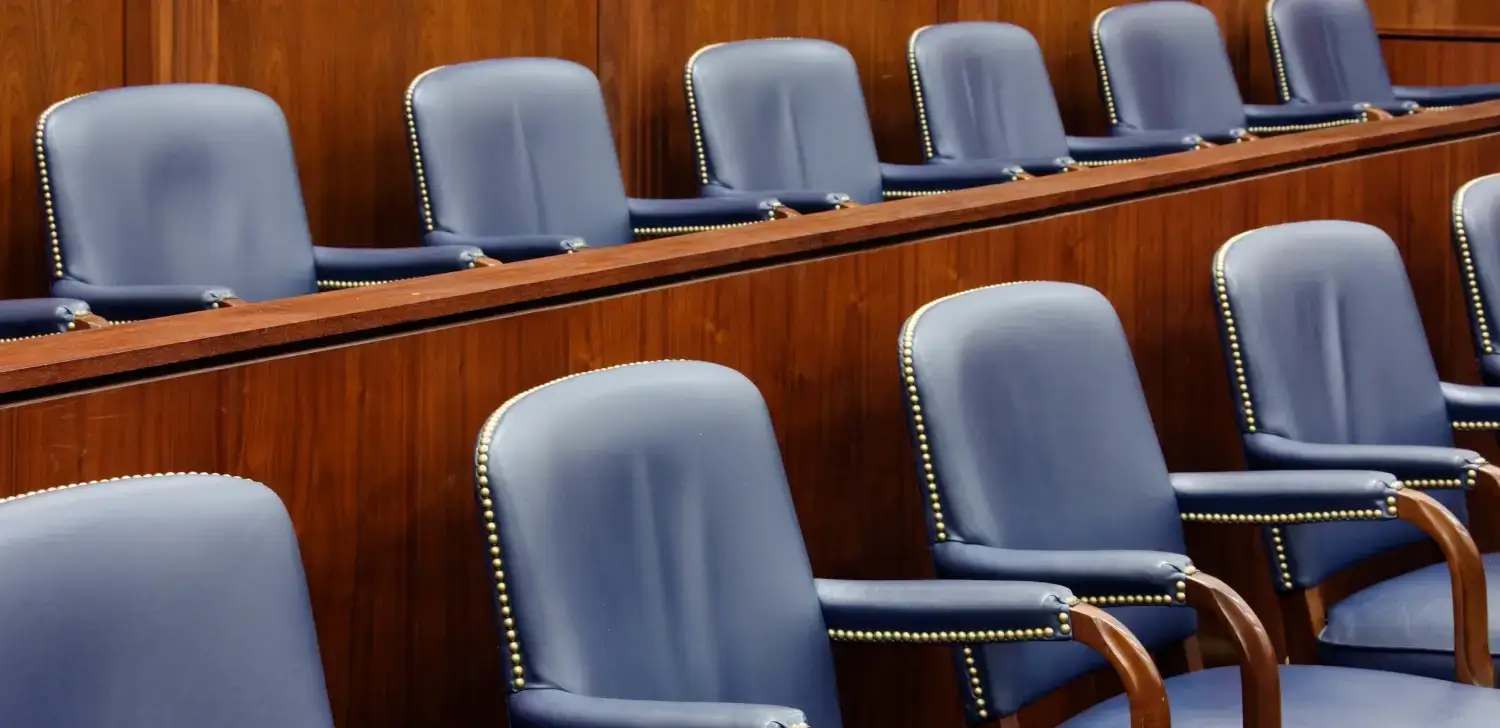Guide to Juror Privacy
Laura Martisiute
Reading time: 7 minutes

Table of Contents
Being chosen to be a juror is no joke which is why we created this Guide to Juror Privacy. For the duration of a trial, jurors’ normal lives are disrupted. Instead of going to work and spending time with their family and friends, jurors must spend hours in the jury pool room, sit in the jury box listening to testimony, and put up with long breaks during which attorneys organize the evidence and prepare answers to legal questions brought up during the proceedings. It’s no wonder jurors often fall asleep!
However, time isn’t the only thing that you have to give up when you’re summoned to appear for jury duty. Unless you and other jurors are granted anonymity, serving on a jury can also lead to a huge loss of privacy. Keep on reading to find out what information on individual jurors is available to the public and what you can do to minimize your privacy risk if you are called for jury duty.
Are Juror Names Public Record?
In most criminal cases, the public can access juror information, including their names and addresses, during the trial’s voir dire phase (i.e., when the jury is chosen). The public can also see transcripts from preliminary hearings concerning jurors. Moreover, juror information is typically made available to the general public after a verdict. This helps ensure that the proceedings are conducted fairly.
However, there is a lively debate over whether the public’s right to monitor the trial outweighs the jurors’ right to privacy. For example, the Tyco trial ended in a mistrial after the name and photo of one juror were spread in newspapers around the world and resulted in her receiving a coercive letter.
In some states, the right of access to judicial information is limited. In California, juror information must be sealed at the end of a criminal trial but can be accessed if a person shows “good cause” for wanting to do so and if the jurors agree.
Can Jurors Remain Anonymous?
In some cases (typically ones connected to organized crime or terrorism), jurors are allowed to remain anonymous. In these instances, the court has usually concluded that exposing jurors’ identity could lead to jury tampering or retaliation. For example, in 2016, a judge issued an anonymous jury order in an Al Qaeda terrorist trial because the defendant threatened to kill prosecutors and court employees. More recently, a judge chose to keep jurors anonymous in the “El Chapo” trial.
In some cases, jurors’ identity mightn’t be revealed to anyone. Conversely, in other cases, juror information might be disclosed to parties (i.e., the prosecution and defense) but kept obscured from the media.
However, even if a court chooses to withhold juror information, members of the media can challenge this decision. In the high-profile Nathaniel Fujita case, The Boston Globe asked to see the list of jurors post-trial. Initially, the court revealed only two jurors but, after the motion went to the Supreme Judicial Court of Massachusetts (which sided with The Globe), all of the jurors’ names were revealed.
Are Jury Questionnaires Public Record?
Although generally considered confidential, a jury questionnaire can sometimes be made available to the public.
For example, juror questionnaires in the Ingmar Guandique murder trial were disclosed to the public even though the judge had promised jurors that their answers to the questionnaire would remain confidential.
What Information Must Jurors Share?
At the start of the selection process, potential jurors sometimes have to fill out the above-mentioned juror questionnaire. Although the questions asked may vary from one questionnaire to another, they often include questions about a person’s:
- Background. Marital status, family members and their occupation, children.
- Residence. Current and past addresses.
- Education. How far you went in school, your major, whether you or your spouse have taken psychology/counseling courses.
- Employment. Occupational status, job responsibilities, past work.
- Activities. Hobbies, membership to any organization (civic, social, political, or professional), TV and radio habits, reading habits, gun ownership.
- Military history. Whether or not you were in the military.
- Law enforcement and legal contacts. Might include questions like, “have you/family member/friend ever been audited or had a dispute with any government department or agency?”
Often, law firms also collect information on potential jurors from sources such as public records, including voter registration, property deeds, and criminal records. Some attorneys might also use people search sites like Spokeo (these sites apparently come in particularly handy post-trial when attorneys want to contact jurors for interviews). This is not considered unethical because the information is publicly available.
Some lawyers use social media and blogs to screen jurors before the trial, as well. In one case, a potential juror was dismissed after it came to light that she had blogged about trying to get in touch with the extraterrestrials.
Attorneys can monitor juror behavior online during the trial. During the Dimas-Martinez case, a judge read aloud an improper tweet posted by one of the jurors (the tweet caused the death row conviction to be overturned). The juror was reportedly taken aback by this invasion of privacy, saying, “Well, I’m a little shocked. That’s a little creepy.” In another case (State v. Christensen), jurors were accused of bias against the defendant because they saw public Facebook posts about the case that might have influenced their verdict.
Although this is a gray area, some experts have noted that merely viewing a juror’s social media profile that’s accessible to everyone is similar to acquiring information that’s publicly available online or in print media. Others have likened digital sleuthing to driving past jurors’ homes to get a better idea of who they are.
However, it’s up to each individual judge to decide whether or not online searches are invasive. The judge in the Oracle v. Google case, for example, said that attorneys could research jurors online but only if they informed them of their intent to do so in advance and gave jurors the chance to make their social media accounts private. Note that attorneys are not allowed to send jurors friend requests or communicate with them in any other way.
During the voir dire, attorneys might also ask jurors questions about their internet activity, including how many hours a day they spend browsing the web, the sites and blogs they visit, and whether they read or post to any online message boards. Voir dire transcripts may be made public.
Is There Anything You Can Do to Protect Your Privacy?
If you’ve been called for jury duty, there’s nothing you can do to keep your name from public record (unless the judge decides to use an anonymous jury).
However, there are still ways you can protect your privacy. To start with, if your social media profiles are public, make them private. Then, do a quick Google search to see whether your name comes up anywhere else like a blog you might have kept years ago or an online message board like Reddit. Consider deleting any search results you’re unhappy with. Note that if your private information appears on websites owned by someone else, you’ll need to contact the site admin to get it taken down.
Last but not least, opt-out of every major data broker and people search site that has a profile on you. You’d be surprised by the kind of sensitive information these sites can hold. If you don’t know where to start, are in a hurry, or don’t want your profile to be relisted in the future (data brokers are notorious for this), get in touch with DeleteMe. For just $10.75 a month, DeleteMe’s team of experts will remove you from all the big data brokers out there, as many times as needed.
Our privacy advisors:
- Continuously find and remove your sensitive data online
- Stop companies from selling your data – all year long
- Have removed 35M+ records
of personal data from the web
Save 10% on any individual and
family privacy plan
with code: BLOG10
news?
Don’t have the time?
DeleteMe is our premium privacy service that removes you from more than 750 data brokers like Whitepages, Spokeo, BeenVerified, plus many more.
Save 10% on DeleteMe when you use the code BLOG10.
















